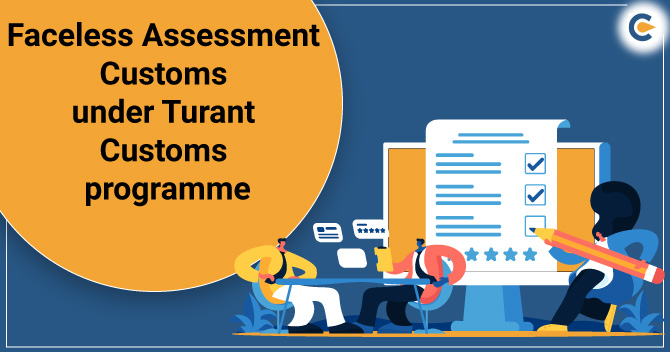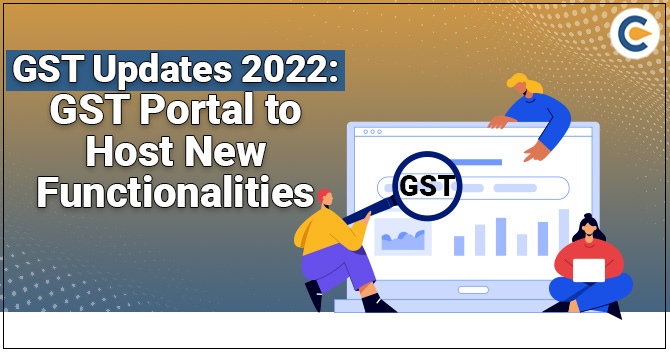The (CBIC) Central Board of Indirect Taxes and Customs has pronounced the Faceless Assessment for all import goods at an All India level in all ports of import by October 31, 2020 under the policy of a next generational Turant Customs programme. However, the CBIC has earlier notified Phases I and II of Faceless Assessment that has included faceless or anonymised assessment, automated clearances of bills of entry, self-registration of goods by importers, digitisation of Customs documents, etc.
Overview of the Turant Customs programme
The main elements of the Turant Customs programme are Contactless, Faceless, and Paperless Customs clearance processes. The objectives sought to be achieved exponentially faster clearance of goods, a reduced interface between trade and Customs officers, which has enhanced ease of doing business. The phased launch of a Turant Customs programme on the select ports of import was to test in a real-life environment, the IT capabilities, and the responsiveness of the trade along with Customs officers to the various initiatives.
The outcomes have been reviewed, and it has been confirmed that they have met the stated objectives. Presently, the stage is set for extending the Turant Customs programme across all the Customs ports of India and which is thereby more modern, efficient, and professional Customs administration with resultant benefits for trade and industry.
Read our article:CBIC: Extension of deadline for GST Return Filing FY 2019-20
Constitution of National Assessment Centres (NACs)
It was intimated that a designated nodal Commissioners must be precursors to the (NAC) National Assessment Centres. Accordingly, the Board has also decided to constitute a total of 11 NACs. These NACs are organised according to the 1st Schedule to the Customs Tariff Act, 1975.
The motive for a selection of the Zone in the NAC is to share volume of the import of the particular commodity groups in its Zone as compared to the All India imports. The share volume has to be contributed by the said commodity groups or the share of import of the particular commodity groups in their own Zones. However, the motive for the selection of the Conveners for NAC is to share the All India revenue contributed by the commodity groups or the share of the revenue contributed by the particular commodity groups in their own Zones
Responsibilities of the NAC
The NACs has the role in a successful implementation of the Faceless Assessment. In addition, the NACs need to work in a coordinated manner to ensure that all assessments are carried out promptly, and there will be no delay or hold up of a Bills of Entry. The NACs will also examine assessment practices of imported goods across all Customs stations to bring uniformity and enhanced quality of assessments. The necessary responsibilities of the NACs will include the following:
- Monitoring and assessment practice for enhancing uniformity of valuation, classification, exemption benefit and compliance with an import policy conditions.
- Assessing an application of (CCR) Compulsory Compliance Requirements and ensure a uniform practice in accordance with the relevant statutes and legal provisions.
- Studying audit objections and also to take corrective actions regarding assessments, when its necessary and also provide inputs to concerning ports of import.
- Analysing an RMS facilitated Bills of Entry and advise the DGARM regarding possible interventions or review of risk parameters.
- Coordinating with Principal Commissioner and Commissioner of Customs at ports of import about any interpretational issues regarding classification, valuation, the scope of exemption notifications and the trade policy conditions.
- Interact with the sectoral trade and industry for inputs, and issues relating to an assessment.
- Function as the knowledge hub or repository
- Examine the orders and appellate orders in relation to an assessment practice regarding goods assigned to each Faceless Assessment Group and also provide inputs to the Commission rates for uniformity of assessment orders before legal fora.
- Constitute Working Groups for matters relating to:-
- Monitoring timely assessment of Bills of Entry
- Valuation and related issues
- Classification and related issues
- Restrictions and prohibitions and Co-ordination with PGAs
- Communication and Outreach for the departmental officers and trade
- Any other matter which is relevant for timely and uniform assessment as decided.
Responsibilities of the Co-conveners of NAC
The Co-conveners of NAC will provide overall leadership and monitor the functioning of all NACs. The important responsibilities of NAC Co-conveners regarding the NAC will include the following:-
- The nomination of the Principal Commissioners and Commissioners as Members of the NAC from the Zones.
- Ensure setting up of the working groups within NACs
- Ensuring that NACs develop expertise over the assigned Faceless Assessment Group in different facets of assessment such as valuation, classification, prohibitions and restrictions etc.
- Coordination with other Directorates and NACs for various
- Making recommendations to the Board for policy considerations.
Co-ordination among NAC Commissioners
As the Nodal Principal Commissioners and Commissioners are spreaded across various geographical locations, the following co-ordination measures can be institutionalised at an initial phase, which will help to bring efficiency to the functioning of NACs. Those are as follows:-


Continuous Assessment
Ensuring the verification of the assessment will not held up in case there is an official holiday for members of the FAG in any particular location. That is why; it could be done by having this work done at multiple locations.
Daily Web Meeting
The Working Groups can virtually meet for a short duration every day at the scheduled time to review the timeliness of assessment, identify bottle-necks and take measures to remove difficulties. The link will be provided to the Chairman, Member Customs, Zonal Members and Joint Secretary (Customs), CBIC and the Co-convenors of NAC, in order to enable participation in the online meeting room.
Weekly web meeting
The Working Groups can have a web meeting for a short duration once a week at the scheduled time to review the valuation, classification, exemption notifications, prohibitions and restrictions in order to identify divergent practices and ensure uniformity.
Monthly web meeting by Co-convenors
The Co-convenors of the NAC will conduct a web meeting, at least once in a month for reviewing the functioning of the NACs.
Conference on Tariff & Other Customs Matters
CBIC, Joint Secretary, Customs, will be made responsible for coordinating with the NACs in organising a Conference on Tariff and Other Customs Matters in every 6 months for reviewing the functioning of NACs and FAGs. The Conference must be chaired by Member (Customs).
Further, Board has issued Notification where Commissioners of Customs (Appeals) are empowered to take up appeals filed in respect of the Faceless Assessments pertaining to imports in case made in their jurisdictions even though the Faceless Assessment officer can be located at any other Customs station. For instance, Commissioners of Customs (Appeals) at Bengaluru would decide appeals filed for imports at Bengaluru. However, the Faceless Assessment officer is located at any other port of the country, say Delhi.
Conclusion
All the clarifications and guidelines on Faceless Assessment are provided on the website. The Principal Chief Commissioners[1] and Chief Commissioners of Customs are requested to issue Public Notices and guide the trade suitably to ensure the smooth rollout of Faceless Assessment. Further, any difficulties faced while in implementation of this Circular may please be brought to the notice of Board.
Read our article:CBIC enables New Functions for TCS and Filing Form GSTR-4 Annual Return by Composition Taxpayers











